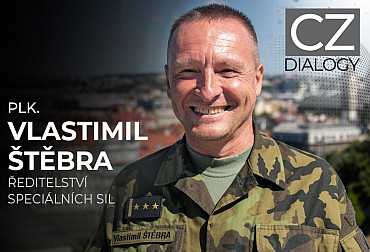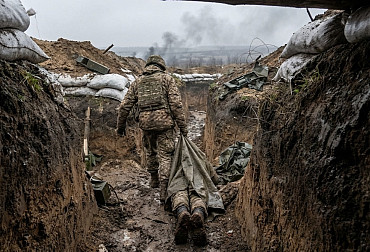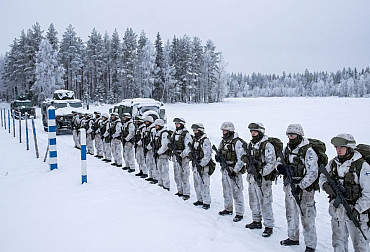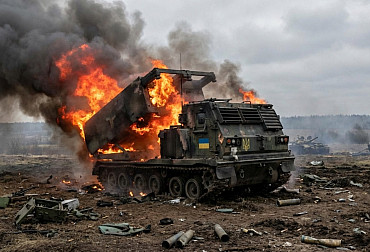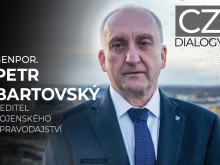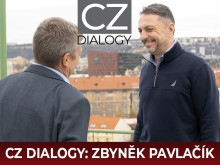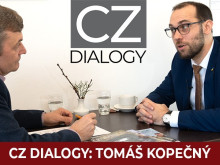Jiří Kašpárek: 95% of arms companies seeking to supply the Czech Army go through our testing facility
The Military Technical Institute (in Czech VTÚ) is a state-owned enterprise established by the Ministry of Defense of the Czech Republic that specializes in research, development, and testing of technologies and equipment for the defense and security sector. Its main activities include the development, modernization, testing, and certification of military equipment, armaments, special electronics, and other systems for the Czech Army and other security forces. We discussed the importance of this state-owned enterprise, various challenges and future plans in the next episode of our discussion program CZ DIALOGY with VTÚ Director Jiří Kašpárek.
Video: Interview with VTÚ Director Jiří Kašpárek / CZ DEFENCE
The Military Technical Institute essentially acts as a system integrator and has three branches. "One is in Slavičín (VTÚVM, editor's note). It focuses on weapons and ammunition. Then there is a branch plant in Vyškov (VTÚPV, editor's note), which builds ground equipment, and a plant in Prague (VTÚLaPVO, ed.), which develops air defense and communications equipment," says Jiří Kašpárek, introducing the range of activities of the state-owned enterprise at the beginning of the interview.
Based on its capabilities, VTÚ participates in many important projects. "If I had to highlight a significant project, for example, in Prague there is the SHORAD (Short-Range Air Defense) project, and in Vyškov there are field kitchens, field workshops, and field hospitals, which this branch produces. And in Slavičín, there are various observation and reconnaissance devices, such as LOV-REKO and LOV-velitel čety, which are vehicles for artillery observation. I would also like to add that each branch has a certified testing laboratory, so it verifies the parameters of products that suppliers offer to the army," says the director of VTÚ, presenting selected projects and capabilities.
Any potential supplier of equipment to the Czech Army can then contact VTÚ with a request for, for example, a certificate from an accredited laboratory. “I dare say that 95% of arms companies that have ambitions to offer something to the Czech Army pass through our testing facility,” says Kašpárek. Most major projects are multi-year, which is linked to the fact that VTÚ has managed to conclude contracts worth almost three billion crowns. This means that the company has secured positive economic results for several years. Based on VTÚ's three-year forecast, Kašpárek says that the state-owned company will remain in the black.
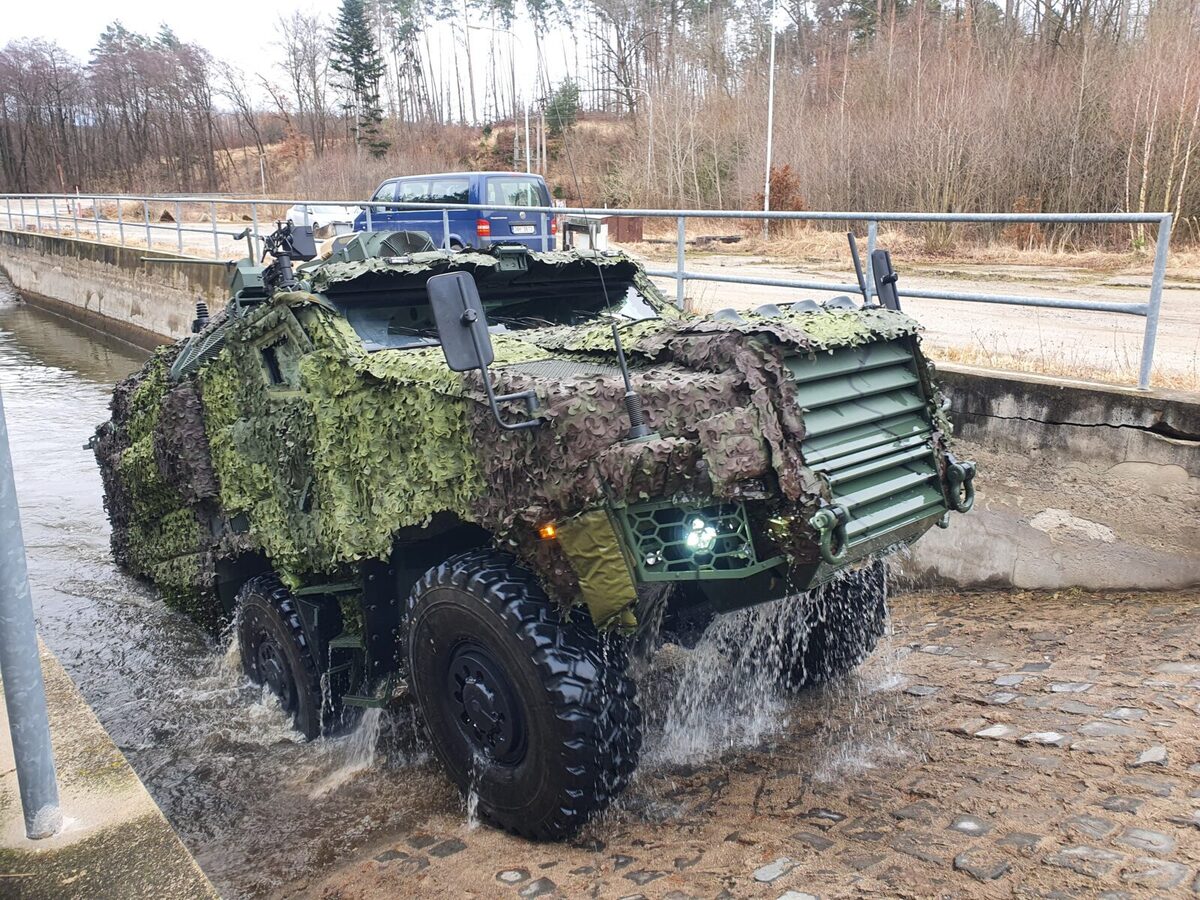
The Slavičín and Vrbětice area, where other arms industry companies operate alongside VTÚ, had to undergo a major transformation after the incident in December 2014. Legislation was tightened, all buildings had to undergo strict inspections, and standards were also tightened. "We currently operate about four buildings. One is a facility and two are connected to the production and storage of ammunition. We had to modernize again and apply all safety measures. Regular inspections are carried out to assess whether everything is in accordance with the law and the safety project. I dare say that the measures are such that if an accident were to occur there, no one would even hear it," says Jiří Kašpárek.
Like all state-owned enterprises, VTÚ has a clear client for 80% of its business, namely the Czech Armed Forces. Similar to the state-owned enterprise LOM PRAHA, VTÚ uses the remaining 20% of its potential to offer its services to other customers. However, these are usually specific services, such as the aforementioned testing. “Testing is not primarily for the benefit of the Czech Army. The army wants to declare the required parameters from subcontractors. So our customers are primarily subcontractors,” explains the director of VTÚ. In terms of civilian projects, the state-owned company can boast, for example, its cooperation with the Czech National Library on the Archa 1 project, which is a mobile conservation workshop designed to preserve Ukraine's cultural heritage. In short, it is a container in which various written monuments were stored or treated.
Recently, there has been much talk about public procurement, especially the law of the same name, which was amended this year (ZZVZ No. 69/2025 Coll.). There is debate about whether the procedure under this law is too slow and thus complicates the implementation of defense contracts. "There are two sides to this. One is that we are waiting for contracts with the ministry. It could probably be said that the time needed to conclude a contractual relationship is longer than the time needed for the actual production and delivery of the given product range. I do not believe that this is primarily aimed at accelerating the entire process through better management; I definitely do not think so. Rather, there are certain deadlines that must be met in order for the contract to be concluded in accordance with the law,“ explains Jiří Kašpárek, who believes that this is more of a political matter. ”Everything is getting more expensive these days. The later you conclude a contract, the greater the chance that it will be more expensive. But on the other hand, I have to understand that the ministry is handling taxpayers' money and that it must be spent transparently so that taxpayers don't feel that their money is being wasted," adds the VTÚ director, who also respects the perspective of suppliers, for whom this process can be extremely long.
The current process of increasing defense spending is also an opportunity for VTÚ. This is because it also affects areas of military equipment that have been neglected for a long time, such as logistics. A specific example is the new field kitchens for our army, which the state-owned company is working on modernizing. According to Director Kašpárek, this is a secondary effect of the war in Ukraine, which is why, in addition to large modernization projects, it is also possible to address issues related to the use of modern technologies and artificial intelligence. “We are currently trying to break into this area. To be honest, we don't have any extra demand for these technologies yet, so we are still in the preparatory stage,” says Jiří Kašpárek. However, the director is well aware that this is one of the directions for further development, especially in the field of communications architecture, where artificial intelligence will play a role.
The ability to analyze and process huge amounts of data is crucial today. “I assume that artificial intelligence will have to be involved, which will evaluate things and send only relevant data,” says Kašpárek. This brings with it the need to build internal security within the company, mainly concerning the data that the company shares. "And we're not talking about data that has some degree of confidentiality. That's a slightly different regime, where security is, of course, 100% guaranteed, as required by law. But we're talking about business matters that we pass on to subcontractors who work with us on projects. There is a need for them to have some kind of certification or accreditation that their infrastructure is secure against cyberattacks," explains the director of VTÚ. A study has already been conducted that identified certain areas where improvements in cyber protection are needed, as VTÚ has recorded tens of thousands of different cyberattacks on its infrastructure.
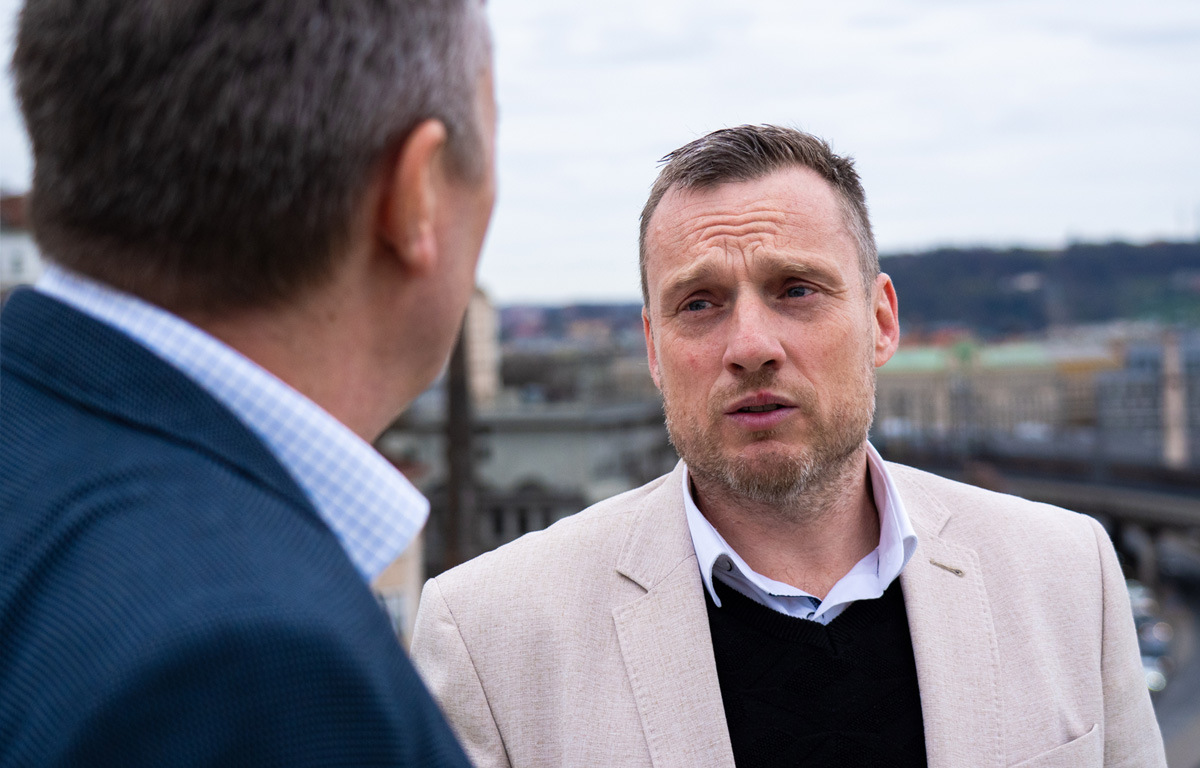
As a certification body, the Military Technical Institute also needs to invest in modern technologies and other resources to keep pace with technological developments. "Where necessary, we try to modernize, buy new equipment, and train people. But this is not always necessary. If you have an EMC chamber that measures a parameter that is always the same, you simply continue to operate the chamber and don't need to constantly modernize it. Of course, we calculate the return on investment for everything. We have to be economical. Even if we have the money, we don't buy things recklessly," says Jiří Kašpárek, director of the state-owned company VTÚ.
If you are interested in more information about the state-owned enterprise, its protection against cyberattacks, the efficiency of its spending, or questions regarding the expertise of VTÚ employees, listen to the entire interview at the beginning of this article.











